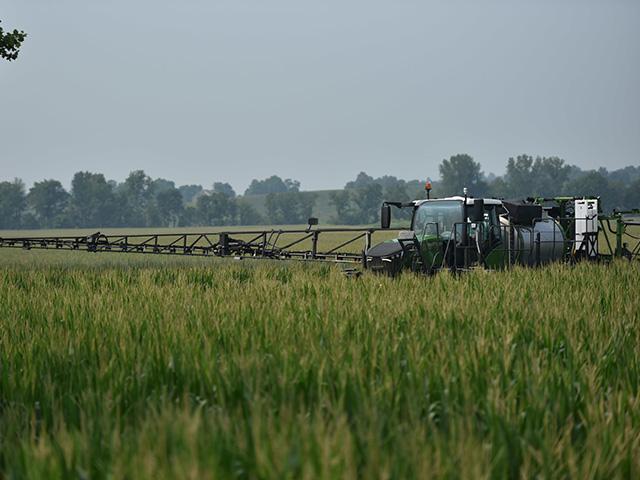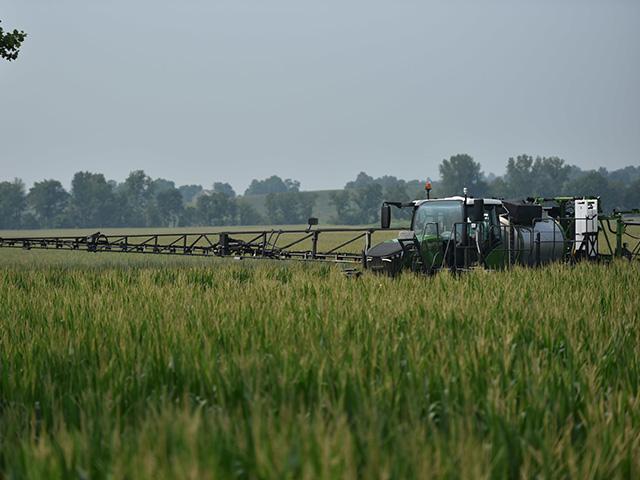MachineryLink
Keep Good Equipment in the Field Longer
Seth Crawford is senior vice president and general manager, Precision Ag and Digital at AGCO Corporation in Duluth, Georgia. He also keeps a hand in his family's corn and soybean farm back in Rock County, Minnesota, a business established in 1872. In fact, he had just returned from the Minnesota farm ahead of this interview.
In a question-and-answer interview with DTN/Progressive Farmer, Crawford talked about the price of machinery (and technology) and about AGCO's focus on developing systems that can be fitted to existing equipment, no matter the brand. Here's what he said.
DTN/Progressive Farmer: What would you say farmers are most frustrated with regarding new technologies?
Seth Crawford: The No. 1 thing that I hear is frustration with the price of equipment. It seems like no matter what the product is, it's about a half-million dollars, or getting close to it. Farmers are saying, "Hey, you're suggesting I buy this, to get this technology, but I've got a perfectly good piece of equipment sitting in my shed. Why do I have to spend so much for something new?" That's one of the reasons we double down on our retrofit first strategy -- what we're doing with (AGCO-brand) Precision Planting. The planters that are out there, and the sprayers and tractors, they're good pieces of equipment that will last a long time, regardless of the brand.
DTN/Progressive Farmer: AGCO's Fendt brand is getting ready to add a sense-and-act spraying system to its Fendt Rogator. Called Smart Spraying, the technology targets only weeds in fallow fields or in fields with growing crops, spraying in daylight and at night. Smart Spraying is the result of a two-year partnership between the Bosch BASF Smart Farming partnership and AGCO. Would you tell us more about it?
Crawford: We're at the point where we believe that the technology is working, and that we'll be able to bring it to market in 2024 -- we're going to have units running by then. It'll be a factory-fit system. We think it's an impressive collaboration between AGCO, Bosch, a technology company, and BASF, (with its) seed and chemical business. (This) changes the game as far as how we how we manage our fields and optimize chemical usage. This enables farmers to be more efficient and more sustainable.
P[L1] D[0x0] M[300x250] OOP[F] ADUNIT[] T[]
DTN/Progressive Farmer: What are AGCO's technology priorities? What might farmers see coming in the next four or five years?
Crawford: We're looking at a couple of different areas. (For example), our edge processing capability where we have sensors and data processing capabilities on the machine. This enables us to capture thousands of data points per second. We're going through the field, at accelerated speeds, to sense and act in the moment with our planters and sprayers. (Precision Planting also) bought a company called Headsight (row guidance and height sensing technologies), which focuses on the harvesting portion of the crop cycle. At each stage, we want to be able to sense an act in the moment to help the farmer get the absolute most out of it. We're also looking at being able to manage (a farm's) fleet from anywhere, investing in connectivity. And that is not just keeping the machine up and running but optimizing it to the fullest level. I have a vision in my lifetime, (where) we eliminate unplanned downtime, because unplanned downtime is super frustrating to the farmer. It can create a snowball effect of things going wrong.
DTN/Progressive Farmer: How does AGCO progress from automation to autonomy?
Crawford: Our stated ambition is to be releasing retrofit autonomy products in the field by the summer of 2024. Our primary focus is around the grain cart operation and tillage operations. But by 2030, our commitment is to have the full crop cycle running autonomously. So, that means you can prep your fields, plant your fields, spray your fields, harvest your fields autonomously. (There's) a lot of work to be done, but we feel good about where we stand today.
DTN/Progressive Farmer: Tell us about the role, potentially, of small independently operating bots on the farm.
Crawford: I think there will be some spots where small swarms of bots may come along. But that will be more the exception rather than the rule. An application that makes sense to me (is for) scouting under the crop canopy where you really can't see it from above. I saw one that looks a lot like these autonomous lawnmowers you're starting to see in North America. Less than a row width, so less than 30 inches, not more than 18 inches to 2 feet tall. And just cruising along beneath that canopy doing its thing, scouting. There are people talking about weed eradication, or tillage with it. But we have a lot of capabilities today that are pretty good at those and highly efficient.
DTN/Progressive Farmer: Talk about AGCO's Precision Planting's retrofitting strategy.
Crawford: (Precision Planting) doesn't look at building a complete machine from the ground up, they look at enhancing what you already have. They work with the farmer to understand what the challenges are, what they're facing, then delivering innovations to solve the problem. We've done that throughout the planting cycle. Now we're bringing that to the application cycle on the sprayers, with our Symphony product (constant nozzle pressure) and ReClaim (boom recirculation).
DTN/Progressive Farmer: Tell us about Precision Planting's Radicle Agronomics soil sampling system.
Crawford: It is (designed) to take more samples at a more granular level and get the samples processed at the local level. We're still in the early stages (with the Radicle Lab), we only have a few units out. We're ensuring we understand the model before we go forward. But it's amazing to me to see the lack of granularity in the field. You see a big field and you see the fertilizer spreaders just blowing and going as they fly across the fields without a lot of variability. Yet, we know in those soils, you have the high-producing areas and low-producing areas, and we can manage it a lot better.
DTN/Progressive Farmer: I can't say I've heard it from dozens and dozens of farmers, but I suspect one concern about today's technologies is this: "Yes, we can collect all this data to improve production and benefit sustainability. But data also creates documentation." Would it be reasonable for commodity crop farmers to think there may be a day coming when government, or even the private sector, asks them for evidence of certain production practices based on those records?
Crawford: That's a good question. But it would be pure speculation on my part. Our intent with collecting the data is to help the farmer make their best decisions. It is their data. There's no fine print on that one. It is the farmer's data, and when data is collected, it is collected on their behalf and based on their consent. We think there's a lot of value there. And we think we enable a better overall operation.
Dan Miller can be reached at dan.miller@dtn.com
Follow him on Twitter @DMillerPF
(c) Copyright 2023 DTN, LLC. All rights reserved.






Comments
To comment, please Log In or Join our Community .